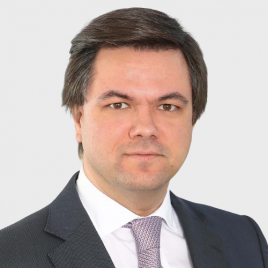Gonçalo Saraiva Matias is an Associate Professor at the Faculty of Law of the Portuguese Catholic University, where he completed his undergraduate degree (2002), master's degree (2010), and PhD in Law (2014), with a dissertation on citizenship as a fundamental right. Between 2018 and 2022, he served as Dean of the Católica Global School of Law. He teaches courses in Constitutional Law, Public International Law, and Global Law, and was a visiting professor at Washington University in St. Louis.
He conducted research as a Fulbright Visiting Scholar at the Georgetown University Law Center (2006–2007) and has had a strong international academic presence, having served as co-president of the Law Schools Global League. He is the author of several important works and articles in the fields of citizenship, migration, human rights, and public law.
Alongside his academic career, he has been Chairman of the Board and Executive Committee of the Francisco Manuel dos Santos Foundation since 2022. He has been a partner at the law firm Saraiva Matias e Associados since 2016, primarily practicing in the areas of Regulatory, Administrative, Constitutional, and International Law. He has been a member of the Portuguese Bar Association since 2005.
From 2008 to 2014, he served as Legal and Constitutional Affairs Advisor to the Civil House of the President of the Republic and has been a consultant to the same Civil House since 2014. He was Director of the Migration Observatory. In 2015, he served as Deputy Secretary of State for Administrative Modernization in the 20th Constitutional Government. He is currently a member of the National Council for Migration and Asylum, of the Management Board of the European Union Agency for Fundamental Rights, and a conciliator at the OSCE Court of Conciliation and Arbitration.
Gonçalo Matias was awarded the rank of Grand Officer of the Order of Prince Henry in 2016 and the Grand Cross of the Order of Merit in 2025. He is recognized for his contributions to public law, particularly in the study of citizenship, migration, and fundamental rights, as well as for his active role at the intersection of academia, public administration, and civil society. He was born in Lisbon in 1979.




